Cryptorchidism
Cryptorchidism is a common congenital anomaly in children, characterized by the absence of one or two testicles in the scrotum. Normally, during intrauterine development, the testes descend through the inguinal canal into the scrotum, where they should be constantly. However, sometimes, under the influence of certain factors, movement does not occur, and the testicle can linger in the abdominal cavity or inguinal canal. The danger of this pathology is that, if untreated, it can lead to male infertility, testicular torsion, hormonal imbalance, and an increased risk of malignant testicular cells. In the first six months of life, about 70% of children recover on their own - the testicles descend without the intervention of doctors. In some children, the disease persists for up to a year, and in these cases, treatment is required.
Types of cryptorchidism
Clinically, the following variants of the anomaly are distinguished:
- True cryptorchidism. It differs in that an attempt to manually move the testicle into the scrotum is impossible. Moreover, it can be located in the abdominal cavity and the inguinal canal, in the upper part of the scrotum.
- False cryptorchidism. The testicle can be lowered into the scrotum with the hands. In this case, the cause is the hypertonicity of the muscle responsible for the elevation of the testicle.
- Testicular ectopia is a deviation of testicular prolapse from the normal physiological pathway. In this regard, the following options for the location of the testicles are distinguished: superficial inguinal ectopia, under the pubis, on the thigh, in the perineum, and cross ectopia - the testicle entering the scrotum from the opposite side.
- A raised testicle. This pathology develops due to a slowdown in the growth of the spermatic cord.
Causes of occurrence
- the impact of various teratogenic factors, including the toxic effect on the fetus of alcohol, smoking, and some drugs;
- chromosomal abnormalities;
- genetic predisposition;
- a complicated course of pregnancy;
- violation of hormonal levels in a pregnant woman and a fetus;
- premature birth;
- obstruction or insufficient width of the inguinal canal;
- insufficient development of testicular ligaments.
Treatment
Cryptorchidism is usually diagnosed in the first months of a baby's life, usually at one of the first checkups that are done immediately after birth. For some time, specialists have been using observation, since there is a high probability that the testicle will descend on its own. Sometimes the appointment of drug therapy is shown, namely male sex hormones, which stimulate the process of moving the testicle. If during the first year of life, as well as after a course of hormonal therapy, the testicle did not descend on its own, the only way out is to perform surgery - Orchiopexy. The optimal timing of the operation for cryptorchidism in children is up to 2 years. The older the child becomes, the greater the likelihood of irreversible consequences in the undescended testicle.
The operation can be carried out openly and using laparoscopic techniques. The choice of technique depends on the location of the testicle: when it is in the abdominal cavity, specialists most often prefer laparoscopic surgery, in other cases, an open method is used. Orchiopexy is performed under general anesthesia. During the operation, the surgeon forms access to the undescended testicle using an incision or punctures brings it to a physiological position, and fixes it in the shell.
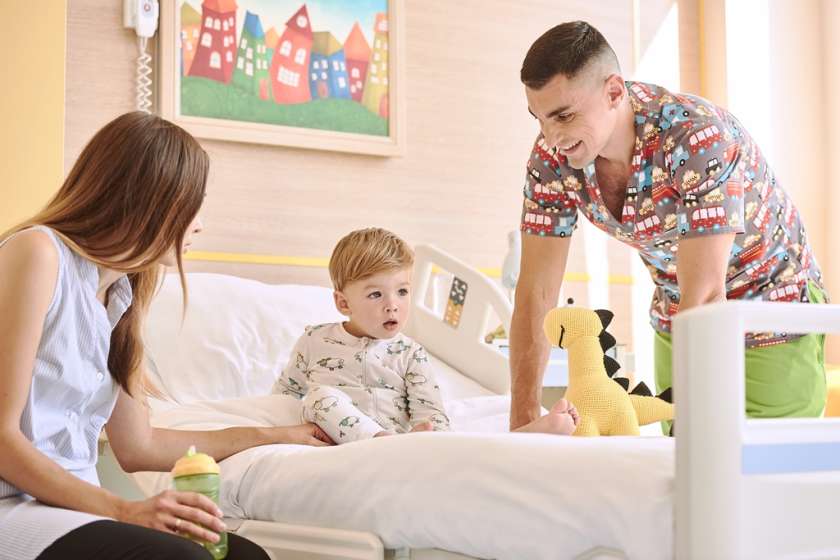
You can carry out an operation to treat cryptorchidism in children in the Dobrobut network of medical clinics in Kyiv. Our specialists are the best surgeons in Ukraine, they have extensive experience in performing interventions, both open and laparoscopic. We ensure that patients stay in the most comfortable conditions, under the constant supervision of staff, while the cost of our services is quite loyal.
You can sign up for a consultation with a specialist or clarify the exact price of the procedure by calling our call center or directly on the website!
Bibliography
- Undescended testicle - Symptoms and causes. Published online, July 21, 2021.
- Adam Felman - Cryptorchidism (undescended testicle): Symptoms, risk factors. Published online, September 24, 2018.
- Cryptorchidism: Symptoms, Diagnosis & Treatment - Urology Care Foundation. Published online, 2021.
- Joel M Sumfest - Cryptorchidism: Practice Essentials, History of the Procedure, Problem. Published online, December 17, 2020.
Our advantages
Our services
Choose the nearest clinic to you
ISO certificates
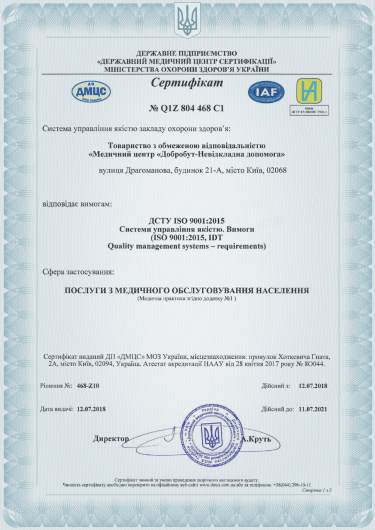
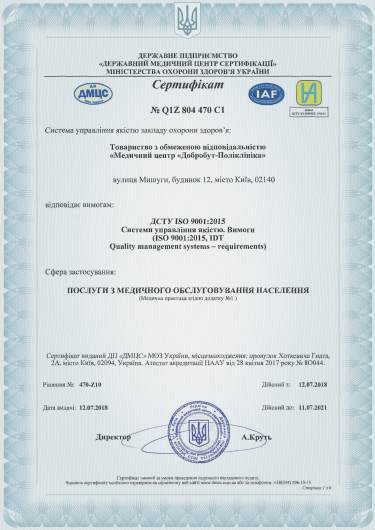
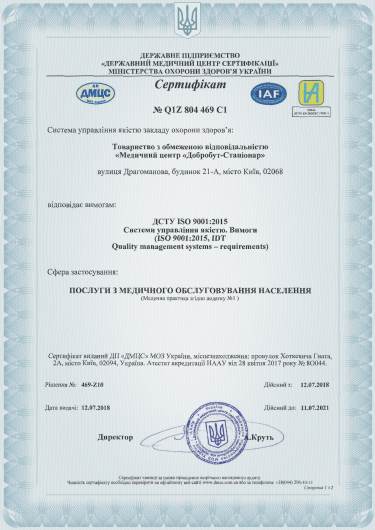
Accreditation certificates
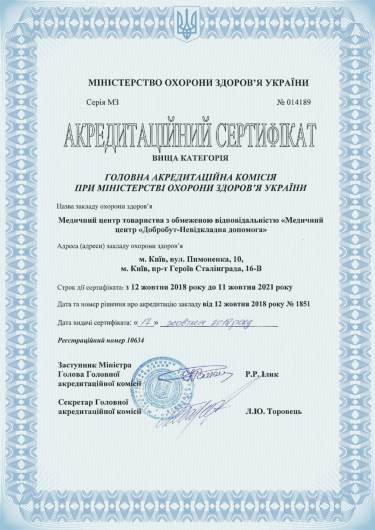
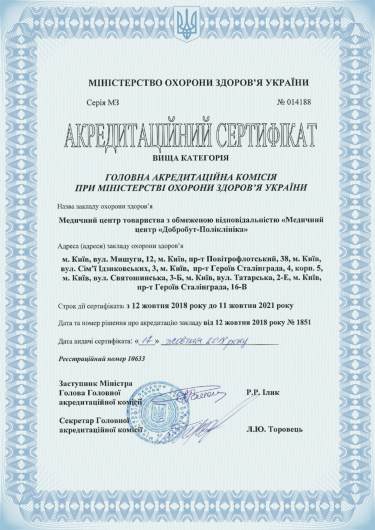
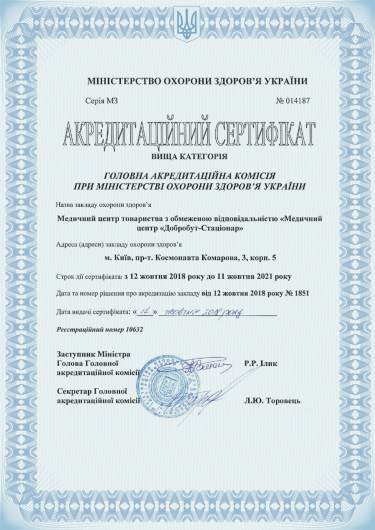
Medical practice licenses
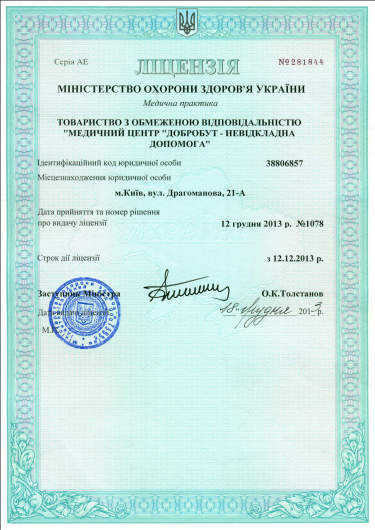
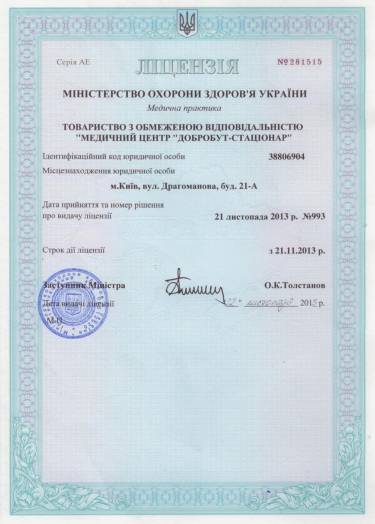
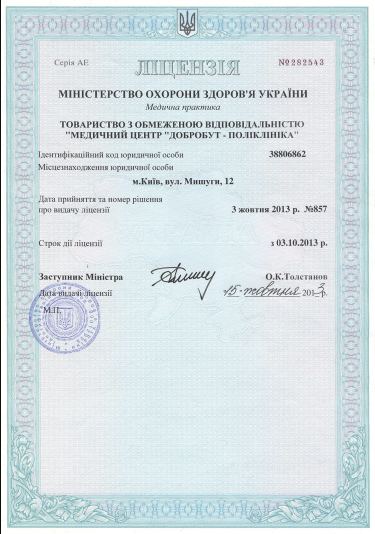
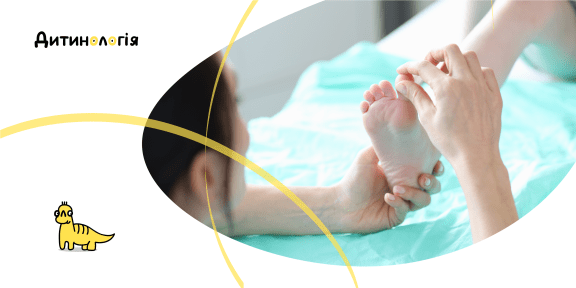






@2x.png)
@2x.png)
%402x.png)
%402x.png)
